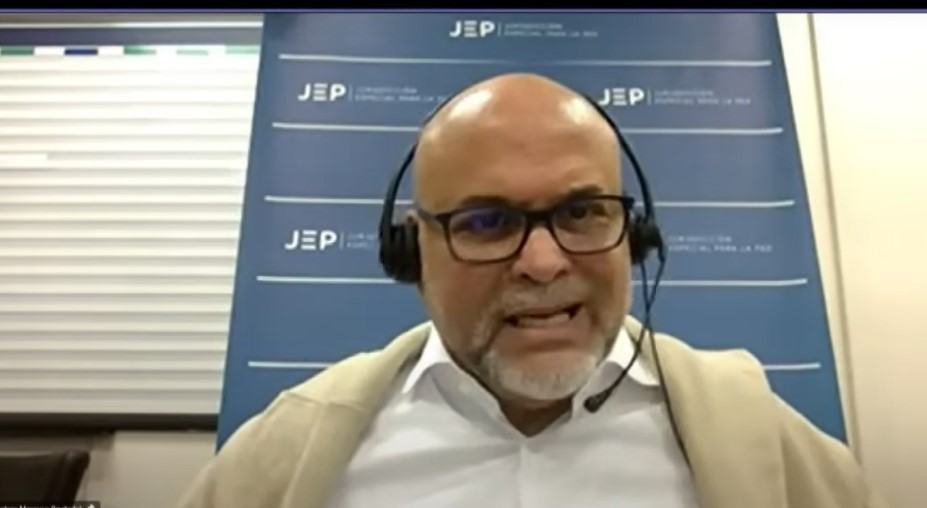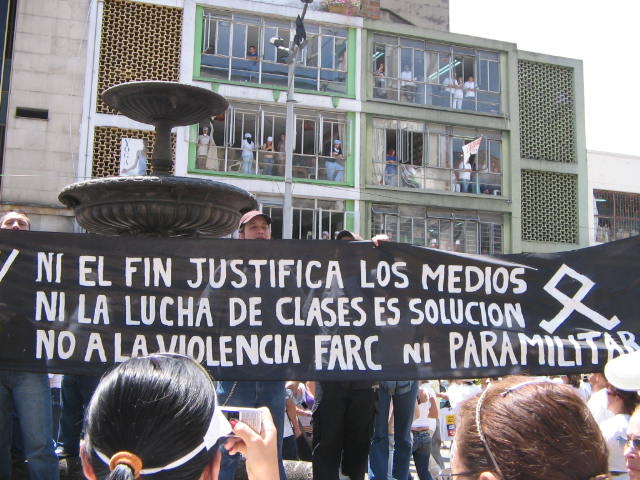
Dreaded former paramilitary leader Salvatore Mancuso will return to Colombia on February 25. From the United States, to which he was extradited in 2008 on drug trafficking charges, Mancuso will fly to Colombia on a commercial flight, guarded by the National Protection Unit.
This powerful Colombian warlord has served a prison sentence of four and a half years in the US, despite being sentenced to 15 years. This is because Judge Ellen Huvelle, in charge of the process, included in her count the seven years of preventive imprisonment he had in the US, plus the 19 months he remained under arrest in the prison of Itagui in Colombia, along with a reduction of the sentence offered by the US Justice for good behavior.
The effective sentence of imprisonment in the United States ended in 2020. Since then, his return to Colombia has been pending, where the legal situation of Mancuso, who was proposed by President Gustavo Petro as a peace promoter after his offer to collaborate in clarifying facts committed during his time as top paramilitary leader, has not yet been defined.
Mancuso and his situation in Colombia
For now, what is known is that Salvatore Mancuso, 59, will be held in a military garrison, although the details of his custody and detention will be defined in the private hearing he will have in the Special Jurisdiction for Peace (JEP) this week.
Regarding the release of the former paramilitary leader, this will be decided in the Justice and Peace Chamber of Bogota, the special court that deals with former paramilitaries demobilized in 2006 and where Mancuso has an arrest warrant. Likewise, in the Justice and Peace Court of Barranquilla, there are 33 security measures against him, an issue that will also have to be resolved.
In August last year, he was appointed as a peace manager by order of the government of Gustavo Petro, and also committed himself to the Unit for the Search for Missing Persons (UBPD) to provide information and collaborate in the search for people who disappeared in the border with Venezuela at the hands of paramilitaries. For the moment, it is not known if the United Nations Mission will verify Mancuso’s work as a social manager.
Accusations against former President Uribe
Mancuso must also explain the exact involvement of former Colombian President Alvaro Uribe (2002-2010) in relation to the El Aro massacre and the murder of human rights lawyer Jesus Maria Valle in 1998. The former paramilitary leader has accused the Colombian politician, then regional governor of Antioquia, of being aware of the paramilitary actions, stating that he met with him in Uribe’s own property.
For his part, and on repeated occasions, the former president has insisted that he never met with the former paramilitary commander, who since the end of last year was admitted by the JEP.
It was former President Alvaro Uribe himself who informed his followers on his social networks of the upcoming arrival of Salvatore Mancuso to Colombia. “Mancuso is coming in two weeks, he has all the protection for him and his lawyers,” wrote the former president on his social network.
Mancuso could be released
Although the legal situation of the former paramilitary commander has not yet been defined, there is a possibility that the Colombian justice system will release him. This option gained momentum last October, 2023, when it came to be known that the Full Chamber of the Constitutional Court protected several of Mancuso’s fundamental rights. In this sense, it is understood that the former paramilitary would have already served a sentence for drug trafficking in the United States, so he could not be sentenced again in Colombia for the same crime.
The decision has not been made and, so far, it has not been clarified what Mancuso’s legal situation will be once he arrives in Colombia. However, the Colombian justice system will have to decide soon, despite the fact that he was accepted in the JEP, after that special justice system concluded that his contributions “are novel, concrete and sufficient to earn him a place as a hinge” between the paramilitary gang he commanded, the United Self-Defense Forces of Colombia (AUC), and members of the security forces.
Paramilitarism and its relationship with the state
Paramilitarism in Colombia has been an ominous force that has left a deep scar on the country’s history. It emerged in a context of political violence and armed conflict, with roots dating back to the mid-20th century. However, its consolidation as an armed player in the country and its escalation of violence accelerated in the 1980s and 1990s.
A key figure in the gestation of paramilitarism was U.S. military officer William P. Yarborough, who significantly influenced its creation during the 1960s. Yarborough, a U.S. military advisor in Colombia, proposed the formation of paramilitary groups as a counterinsurgency strategy during the Cold War. This proposal materialized with the creation of the peasant self-defense groups, precursors of modern paramilitary groups.
The paramilitaries, financed by landowners, drug traffickers and business sectors, became a powerful force seeking to combat leftist guerrilla groups and protect the interests of their financiers. However, their actions soon turned to indiscriminate violence, selective assassinations and the persecution of social and political leaders.
For decades, the Colombian state maintained ambivalent relations with the paramilitaries. Although it officially condemned them, in practice there was collaboration and complicity on the part of some military, political and economic sectors. This murky relationship exacerbated the armed conflict and prolonged the suffering of the civilian population.
The demobilization of the paramilitary groups began in 2003 as a result of negotiations with the Colombian government. However, this process was marked by controversy and lack of transparency. Many paramilitary leaders were extradited to the United States on drug trafficking charges, while others continued to commit crimes under new criminal gangs, known as the BACRIM.

See all the latest news from Colombia and the world at ColombiaOne.com. Contact our newsroom to report an update or send your story, photos and videos. Follow Colombia One on Google News, Facebook, Instagram, and subscribe here to our newsletter.

